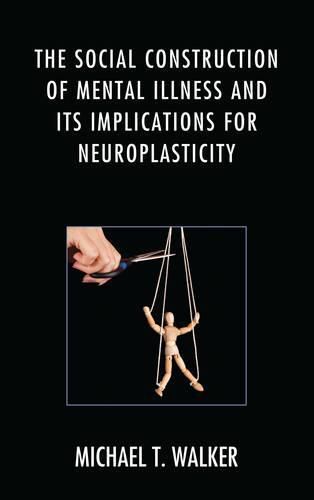Readings Newsletter
Become a Readings Member to make your shopping experience even easier.
Sign in or sign up for free!
You’re not far away from qualifying for FREE standard shipping within Australia
You’ve qualified for FREE standard shipping within Australia
The cart is loading…






The Social Construction of Mental Illness and Its Implications for Neuroplasticity examines how the current concept of mental illness in society informs the dialogic skills and perspectives of psychotherapists. The common interpretation of unconventional behavior as a symptom of illness has marginalized the creative class and deterred mental health professionals from developing the skills and perspectives needed to empower their clients. Too often the neuroplasticity of the human brain is ignored in favor of the organizing metaphor of chemical imbalance which often results in the relegation of clients’ needs to the pharmaceutical industry. Michael T. Walker encourages psychotherapists to evolve their practice by considering the new information available in neuroscience, psychotherapy outcome studies, and postmodern psychotherapies.
$9.00 standard shipping within Australia
FREE standard shipping within Australia for orders over $100.00
Express & International shipping calculated at checkout
The Social Construction of Mental Illness and Its Implications for Neuroplasticity examines how the current concept of mental illness in society informs the dialogic skills and perspectives of psychotherapists. The common interpretation of unconventional behavior as a symptom of illness has marginalized the creative class and deterred mental health professionals from developing the skills and perspectives needed to empower their clients. Too often the neuroplasticity of the human brain is ignored in favor of the organizing metaphor of chemical imbalance which often results in the relegation of clients’ needs to the pharmaceutical industry. Michael T. Walker encourages psychotherapists to evolve their practice by considering the new information available in neuroscience, psychotherapy outcome studies, and postmodern psychotherapies.